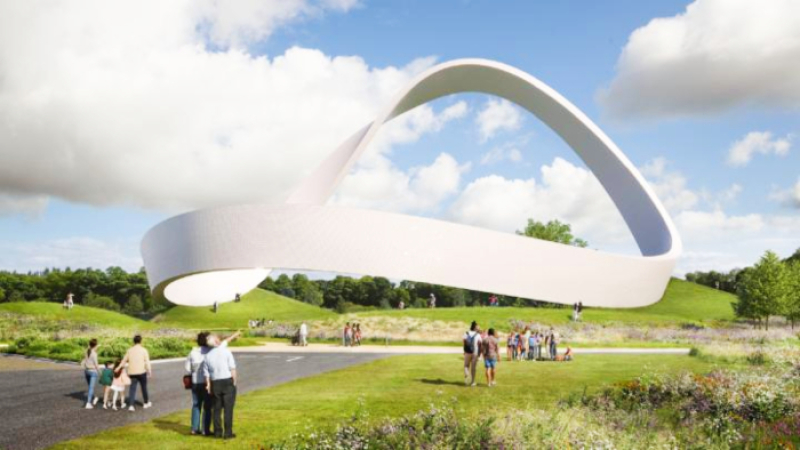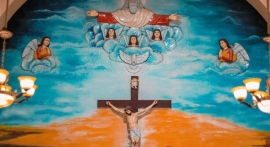
Construction of the Eternal Wall of Answered Prayer, a monumental Christian structure celebrating answered prayers, is set to begin this summer. The landmark, which will stand 169 feet tall, is located near the M6 on the outskirts of Birmingham and is now anticipated to open in autumn 2027, according to The Telegraph.
The monument’s infinity-loop structure inspired by a mathematical Möbius strip,is intended to symbolize God’s eternal nature. The project in Coleshill will be made of 1 million white bricks, with each brick digitally linked to a story of answered prayer.
Expected to cost nearly $13 million (£10 million), the Eternal Wall has faced significant challenges since its inception. Originally slated to begin construction in 2022, the project was delayed due to rising costs from the cost-of-living crisis and unforeseen design issues. However, recent developments have brought it closer to realization.
An update from the charity behind the project, also named the Eternal Wall of Answered Prayer, revealed that the team is entering the final testing stages, and a scale model of the structure has successfully passed wind resistance tests. Richard Gamble, the founder of the Eternal Wall of Answered Prayer, described the journey to this point as both challenging and rewarding.
Gamble, a former software business owner, first envisioned the project in 2004 following a profound spiritual experience while carrying a wooden cross for Easter. He stated, “I just had this flash of a thought that came through my mind, which I recognized as God, of building a wall made of a million bricks where every single brick would represent the story of answered prayer,” as quoted by The Telegraph.
The monument aims to honor not just the stories of ordinary individuals but also the prayers of notable historical figures, including Winston Churchill, the late Queen Elizabeth II, evangelist George Müller, and the soldiers of Dunkirk.
Gamble initiated a crowdfunding campaign in 2016, raising over $60,000 (£47,000) to fund a design competition sponsored by the Royal Institute of British Architects. The winning design, crafted by Southampton-based Snug Architects, received approval from North Warwickshire Borough Council in 2020.
Despite ongoing financial challenges, including an urgent shortfall of $84,000 (£65,000) announced earlier this year, the charity remains optimistic about the project’s progress. Organizers project that the monument will attract around 500,000 journeys per week, with an estimated 200,000 visitors annually.
















